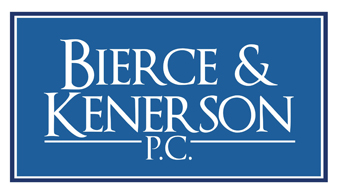Reconsidering How to Protect Trade Secrets, Technology, Intellectual Property from Abuses by Former Employees after Texas Court Invalidates FTC’s Ban on Non-Competition Covenants
Does your company require any employees to sign a covenant not to compete with it after termination of employment? How do you protect your technology, key business relationships, trade secrets, intellectual property and confidential data now and in the future?
These questions depend on unresolved litigation that involves some risk to employers. Employers, business owners and private equity investors have some breathing room to review these issues.
State Laws. For a long time, many states’ courts (including Texas and New York, excluding California) have enforced “non-competes” if reasonable in scope, duration and geography
Federal Rulemaking. On April 23, 2024, the Federal Trade Commission concluded that non-competes are “unfair trade practices” and imposed a nationwide ban on virtually all non-competes for any “workers” (including employees, independent contractors and other individuals) effective September 4, 2024. One exception applies to policy-making senior managers paid over $151,164 per year.
Federal Litigation. On June 28, 2024, in its Loper Bright decision narrowing administrative agency discretion, the U.S. Supreme Court canceled its prior Chevron principle that federal agencies are presumably “always right” and courts should normally defer to agency actions. Under Loper Bright, courts (not administrative agencies) are the competent authorities to interpret the scope of legislative authority delegated by Congress to administrative agencies.
On August 20, 2024, the U.S. District Court for the Northern District of Texas held, in Ryan LLC v. FTC and citing Loper Bright as precedent, that “The Non-Compete Rule, 16 C.F.R. § 910.1–.6, is hereby SET ASIDE and shall not be enforced or otherwise take effect on September 4, 2024 or thereafter.” Rationale: “Having concluded that (i) the FTC promulgated the Non-Compete Rule in excess of its statutory authority, and (ii) the Rule is arbitrary and capricious, the Court must “hold unlawful” and “set aside” the FTC’s Rule as required under § 706(2). As to the FTC’s argument that relief should be limited to the named Plaintiffs—the APA [Administrative Procedure Act] does not contemplate party-specific relief. See generally 5 U.S.C. § 706(2).”
Compliance Strategies. Prior to this August 20, 2024 District Court decision, our firm recommended compliance despite unresolved litigation. Pending possible U.S. Supreme Court review of the Ryan litigation, employers should consider possible actions to:
- Review existing state law principles on non-competition covenants;
- Identify how, if the Supreme Court validates it, the FTC rule might impact their employees, independent contractors and business model;
- Designate a point-person to track, understand, and, if necessary, be able to explain to management and employees and guide on compliance with existing non-compete covenants and advise on possible employer updates to protect trade secrets; and
- Reassess existing non-competition covenants and non-solicitation covenants and consider whether to take new steps to:
- protect trade secrets and intellectual property;
- manage the employer’s business relationships and non-disclosure agreements with customers and suppliers;
- update HR policies to address teamwork, roles and responsibilities of senior executives who are “policy-makers,” intellectual property, qualified incentive stock option plans, and non-qualified deferred compensation such as stock appreciation rights and “phantom stock”;
- revise corporate governance procedures including shareholder agreements, buy-sell terms and owners’ exit planning scenarios; and
- consider local law in selection of office locations.
To evaluate how this situation might affect your company and its business, please feel free to contact one of our attorneys.
